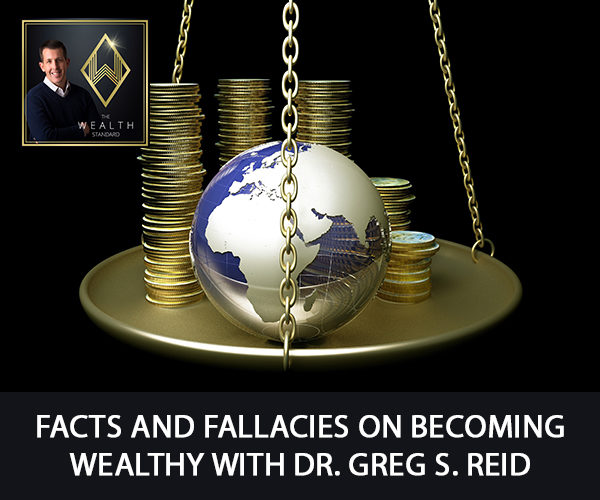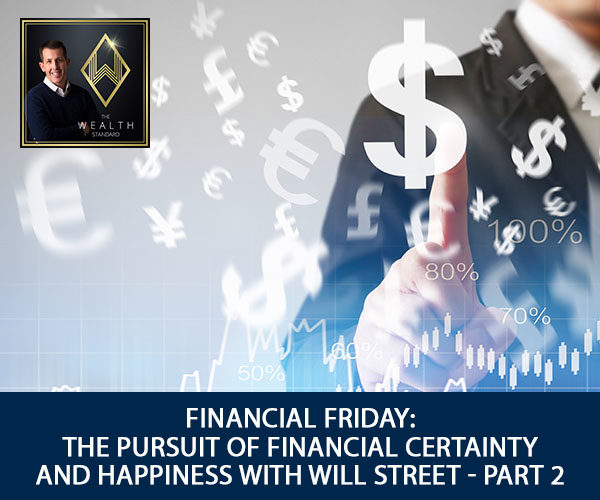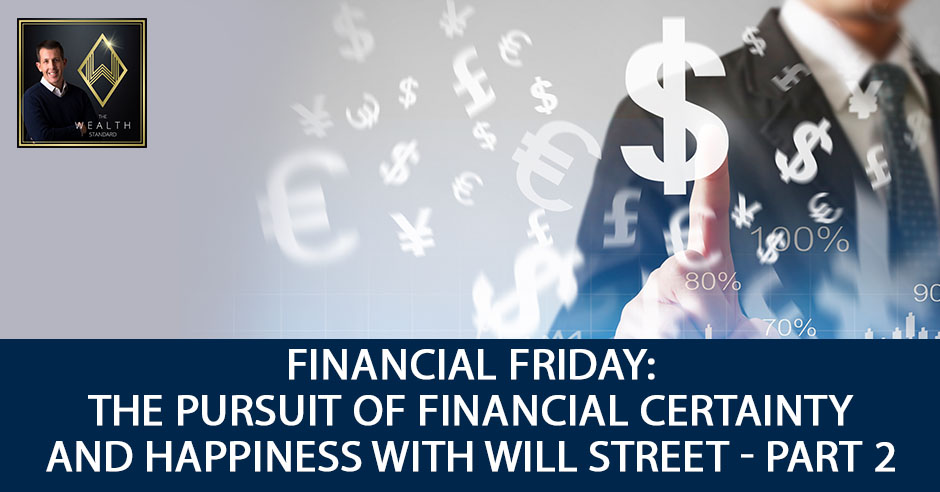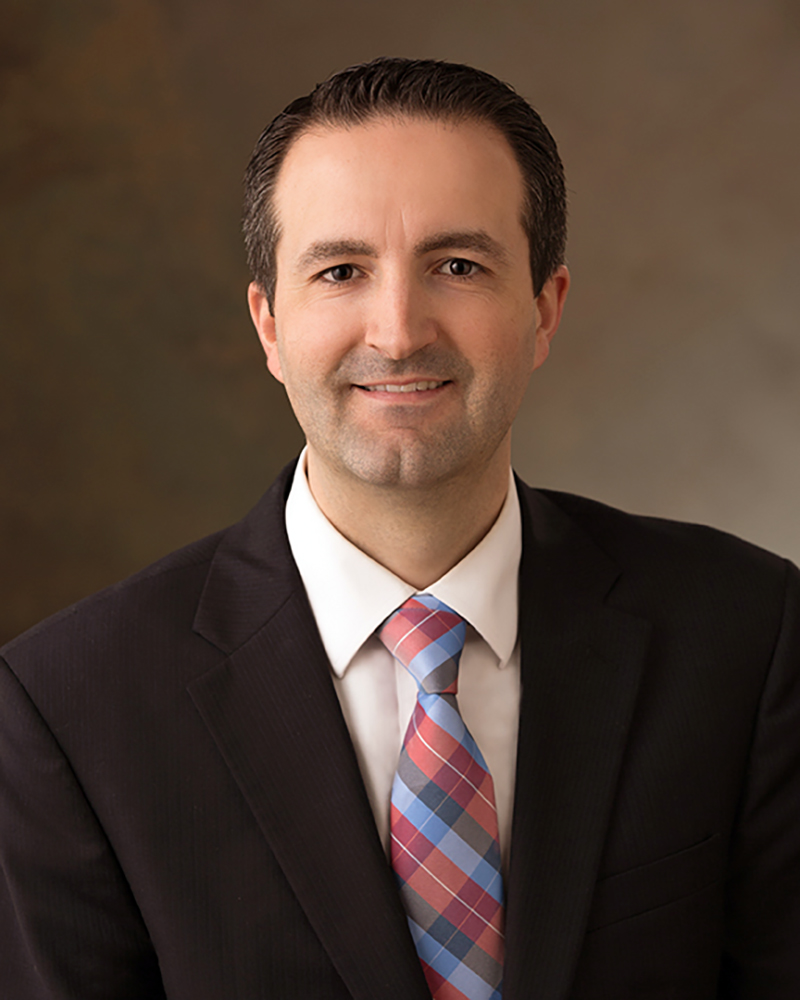Facts And Fallacies On Becoming Wealthy with Dr. Greg S. Reid
Podcast: Play in new window | Download
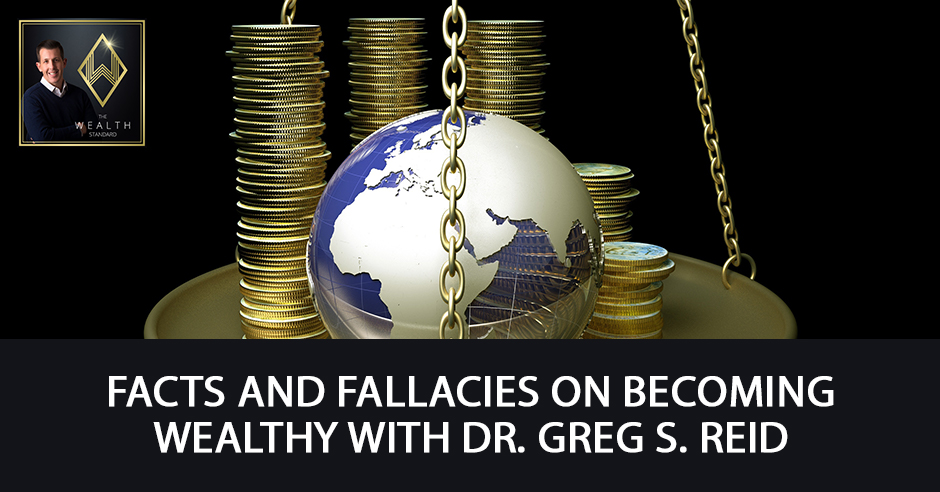
—
Watch the episode here:
Listen to the podcast here:
Facts And Fallacies On Becoming Wealthy with Dr. Greg S. Reid
In this season where we are talking about entrepreneurship, I have no one better to talk about that subject than Dr. Greg S Reid. He is our guest. He is the author of the Think and Grow Rich series and the Founder of the Secret Knock event. He is the New York Times best-selling author of Three Feet from Gold, which he wrote with Sharon Lechter and also Thoughts Are Things, which he wrote with Bob Proctor and Stickability: The Power of Perseverance. His new book, Wealth Made Easy, is a big paradigm shift for Greg. I enjoyed the interview and you are going to as well. There are lots of counterintuitive ideas that we bring up in some of the discoveries that he made. He calls into question a lot of the ways in which he’s taught about wealth, pursuing your purpose and pursuing your dreams that may not be as true as you think. I’m going to provide some commentary, in addition to the interview itself, on some thoughts and things that I learned from the interviews. Make you head over to YouTube and search for The Wealth Standard Podcast. You should see our channel come up.
—
Greg, thank you for taking the time. You’ve got a lot of stuff going on. We’re blessed and grateful to have you on. I was thinking we start off with talking about your book but why don’t you to tell us about the movie you have coming out?
For people that don’t know me, I’ve been publishing about 78 books in 45 different languages. I did one a few years ago called Think and Grow Rich “Stickability”: The Power of Perseverance. I went to a café, I sat down and there was Frank Shankwitz. He started a nonprofit called Make-A-Wish. At the end of the interview, I go, “Frank, I got to know. What did you ask for?” He goes, “No one ever asked me.” I said, “I want to be the guy who grants your wish. What do you want?” He said, “I want my story to be told so my grandkids will know I did something.” It took several years and millions of dollars from a knucklehead that knows nothing about movies and we launch nationwide in theaters called Wish Man.
What’s the URL for that, so people can learn where it’s playing near them?
You can Google it anywhere. It’ll pop up. It’s WishManMovie.com.
My niece had cancer a few years ago. They did a whole thing. She went to Europe with my brother and his other kids because of Make-A-Wish. That’s an incredible foundation so to hear that story, that’s exciting. You being on the front lines to hear it all was a huge blessing.
It’s always the stories behind the story. You’re talking about the end result. People don’t know his story when he was twelve years old and abandoned and all the different stuff he has gone through his life. The whole moral of this movie is that everyone can be a hero. If a Florida cop with no money could do one act of kindness and have a ripple effect, we can give a homeless guy a pair of socks. We can do something to be a value to other people.
It’s interesting how life sometimes starts out with us being interested in ourselves. After self-interest and after what’s in it for us, it completely shifts to the true fulfillment and achievement comes from making the most difference in other people.
Where would we get a better kick from, getting a dollar an hour raise at work or watching your kid accomplish some great feat? We always get more energy and exhilaration from other people’s success. For some reason, we’re selfish animals. Some people get selfish behavior, like myself making this movie by granting other people’s wishes and doing stuff. It’s like a two-edged sword. I know we’re talking about one of my books, Wealth Made Easy.
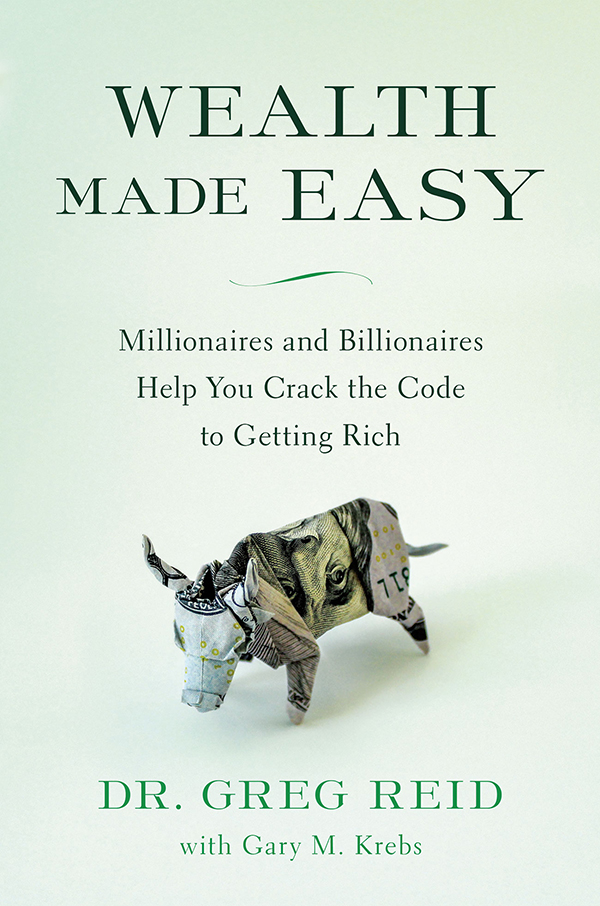
Wealth Made Easy: Millionaires and Billionaires Help You Crack the Code to Getting Rich
The most recent one and obviously, 78 is quite the feat. I had a question that may be transitioned from the movie to the book. I know the book is taking a different spin because the title is Wealth Made Easy. You can assume what it would be about. However, from what you discovered, there’s a lot of counter-intuitiveness to what wealthy is, what rich is and what those people think and do. That’s my first question is what is your understanding of wealth and success relative to what you’ve learned from this most recent project?
Out of all the books, I’ve written and every time I ever talked about wealth and money, 100% I was wrong. I’m going to be very clear. What this book did was it gave me a new paradigm where I saw things from a different perspective. What I did is I sat down with people who are $100 million to billions. I said, “How did you do it? I don’t care about what you’ve read or what you ate. What did you do?” I realized that I could sit with people for three hours and three days. At the end of it, I go, “What you’re saying is you did this.” I reduced it down to one page. They go back exactly it. I went, “Great.” I went to the next person and the next person. Everybody’s wealth path is one page long. If you want to know how oil works or the internet or something treasure to goldmine, this book delves into each category so the regular person would go, “That’s how it works,” and that’s what we did.
What’s the counter-intuitiveness of it? It sounds like everything’s changed for you. Your understanding of what success was and wealth was throughout a couple of decades now makes a massive shift in one book. How would you summarize that in a page?
I will do it in a little bit longer because you’re getting to the end of the story. If you’re watching a movie and you’ve got to sit for an hour and a half and you get to the end of it, that’s what we’re getting to right now. What’s interesting is I sat down with one multibillionaire. I asked him, “Why are you a billionaire and I’m not? I’m just as smart as you. I take as much action.” He looked at me and said, “That’s easy. The problem is that you believe all the lies that you spread to the world. You are the person who brings people down. You are the person who keeps everyone broke and we appreciate it. Would you do us a favor and continue that message? You’re the purveyor of the greatest lie that was ever told, ‘Go find your passion and the money will follow.’ Keep making more bumper stickers and t-shirts. We love when you tell people that.”
I looked at him and said, “What do you mean?” He pulled out a phone that had a meme on it. The one of mine says, “Follow your passion and not a paycheck.” He goes, “That’s why you’re broke. Here’s your problem. You’ll find a welder who works their whole life. They’re admirable. They retire with some money. They go to a Tony Robbins seminar. They get fired up and open a yogurt shop because it’s their passion. 95% of businesses that fail the first year isn’t because they’re not passionate or taking action. He’s a welder, not a yogurt guy. What’s cool? When they go under, it’s their baby. They’re passionate. They hold on so much, so long, they don’t let go. They pull their house, their car, and their boat. We come in and buy that for pennies on the dollar. God bless. Keep that momentum going.” I go, “What are you talking about?”
He goes, “We’re a game of Frogger. We ride a log. As soon as it dips, we jump to the next log. We can never go down with the ship. We don’t care. It’s business. We capitalize on all these opportunities and we get so much wealth, we use that money to finance our passion. You guys do it in reverse. We own the coliseums and the football teams that everyone following their passion have given their lives for a couple of million dollars out in the field. It’s such a different thing. The sheiks in the desert, the Getty’s, they have no passion for crude oil. Waste management has no passion for dirty diapers and rotten cheese. They aggregate dealers have no passion for building the freeways but they built every university, the ballet, the art and everything that you know and love. Stop your thinking and change the way you look at things.”
How have you identified their forte? Maybe you don’t call it passions, but strengths or their experiences because that makes sense.
The rabbit hole that you’re about to go down to is what I used to teach and that is incorrect. It is not that. Almost everyone fell into something, ask backward and they capitalize on it. What happens is this, “What if God in the universe was very generous? What if everything we ever asked for, everything we ever prayed for, was given to us but we didn’t like the packaging so we send it away?” The only thing billionaires do differently is they don’t mind the way it comes to them. Let me give an example. If I said to God, “I need $100, please. I’ll do anything for $100.” A pickup truck pulls up in front of my car and says, “I’m running late. Do me a favor. Get all these aluminum cans out off the back. You can take them and cash them in.” It’s worth $100. You go get those stinky things out. I prayed. I asked. It was delivered. I didn’t like the packaging. I send it on its way.
Successful people have reticular activator. They say, “Be careful what you ask for because you might get it.” They’re not so particular of how those are brought. How much passion did the guy who created the cardboard box or the trash bag have? All the things that the richest people in the world did, they didn’t have passion and talents but they saw an opportunity, a desire and a need that was gone unfulfilled. They stepped in and did something about it and they’re the people that we tell the stories about.
Start looking at what other people are doing and add your own spin to it rather than reinventing the wheel. Click To TweetLooking at their ability to see the world that way, wouldn’t you consider that a strength that is coming from the experience? It’s capitalizing on understanding what human behavior is. People are looking for solutions but also, people pursue their passions. They’re driven by their emotions. They don’t have those in check. Experiencing what made them successful, how have you taken that and started to master your own businesses?
My entire life has changed. It’s almost incomprehensible how much it has changed in that part. It’s interesting because I started seeing things from a different viewpoint. I’ve sat down with this other billionaire guy. I said the same thing, “Why are you building on that?” He goes, “It’s because you’ll see the same situation as we do, but you don’t have the wealth mindset.” I said, “Give me an example.” He says, “Here’s a guy that wants to buy a plane. There’s another that wants to sell a plane. If you’re such a nice guy, you’re going to put the two together.” I go, “Yeah.” H goes, “You’re an idiot. Here’s what we do. We are very clear in our intention. We go to the guy and say, ‘I understand you want to sell your plane. I don’t know anyone that wants to buy one but if I find someone, will you give me a 20% commission?’ He goes back, “Yeah. Get rid of this plane.” You go to the other person and say, “I don’t know anyone that wants to sell the plane but if I find you that, will you give me free airline tickets to Hawaii once a year?” He goes, “Yeah.” It’s the exact same action except one has a wealth mind and the other doesn’t.”
It’s like the broker of opportunity.
I can keep going back. 100% of every billionaire I met did not go into a passion-filled industry. They found an opportunity and they capitalize on it. The founder of Chick-fil-A, $1.4 billion, Truett Cathy. Before he died he goes, “I had those little tiny restaurant called The Dwarf. I had two seats on the thing. I have no idea of that making this chicken sandwich would go on.” It’s the same thing for the next person and the next person. No one sat there and said, “I’m the great mobile home park guru because I have so much passion for mobile homes.” These are the people that are truly the wealthy people that have changed our environment and our surroundings. I say we put our guns down and start on what is possible around us. I’ll give you an example.
I have always turned down an industry called network marketing. I was probably the biggest anti-network marketing guy in my whole life. I was 54 and I was anti. I finally got a product. I started doing it. I crushed it. They send me whole barrels of money. I tell my friends. Now, I found a new organization and I became the president of it. I’m going to get behind it full force because I see an opportunity of something I was shooing away before. I also look back and go, “How many millions of dollars have I walked away from because I didn’t like the packaging in which it came?”
Why were you so afraid of that industry? What was the mental thing going on where you are not necessarily in or bought into network marketing?
I kept seeing the same result. People would start something and build it. The companies would have a sketch and they would shift it out. People have to go back and start over. I saw the way that the industry was run. It’s interesting, even in the movie industry. When I went into it, I go look, “I cannot change Hollywood. I know nothing about Hollywood nor can I change it, but I can change the distribution.” It’s the most powerful part, but no one’s even paying attention to it. My movie is the first one in the history of the world that I know of that closed the distribution that no one ever did. When we did books, it’s the same thing. Sharon Lechter and I took Three Feet from Gold. We did a joint venture deal with a company called Barnes & Noble bookstores where they published our book, the first one in history. We did a JV deal with them. Who’s got a bigger email list, Barnes & Noble or me? I realized that by using these leverage points, amazing things and opportunities would start coming our way.
What are some other actual things that readers would gain by understanding your new perspective or paradigm?
I’ll give an example. It’s the power of dirt. It’s interesting talking to Steiner, the guy who started Steiner Sports, all those sports memorabilia. They were selling shoes like Derek Jeter for $300 because everyone wanted an autograph. They realized when there was dirt on them and they were game-used, they could see it for $3,000. When they started tearing down the stadium, he would go and buy the dirt and all of a sudden, package it with pens and keychains and made I can’t even tell you how much money. While everyone else was throwing away and taking to the dump, one other person saw millions of dollars.

Fallacies On Becoming Wealthy: Using accessible leverage points brings in more amazing opportunities.
That billionaire I interviewed, I said, “How did you make your billion dollars in the dirt?” He says, “Time plus land is money.” I go, “What do you mean?” All I do is look for a town that’s growing 25% a year. Go on Google maps. You can find it anywhere. I look for Broadway, Main Street. I draw a line out eight miles and I buy the dirt. I rent that dirt to farmers who pay the lease, so it’s free. I get vegetables. As the town continues to grow, it ends up on my plot. If I’m on Main Street, that’s what I sold to the big-box stores for 800 times what I paid the billion dollars.” Every one of these wealth hacks, you read and go like, “That’s how it works.”
Seeing the future, it is a skill set that has made a lot of people a lot of money. Where does that start?
You cannot see in the future, “I’m not going to buy into that. I’m sorry.” That’s for some of these people. Other people see an opportunity and they go for it. They have no idea. If this was true, it means my space should be the greatest success story of all time. That’s not true. What we do differently from visionaries is we’re like a quarterback. We never throw the football where the wide receiver is standing. We throw it downfield and let the wide receiver run to it. We call it being kind to your future self. What we do is an actionable step now that, down the road will have the success blueprint. If you go on my stuff, I would like the most popular kid in town and that’s awesome but people don’t see that a few years ago, I started winding up and throwing the football and now it’s all coming to me. The whole idea is that I’ve been throwing a football in the field for years. Coincidentally, they’re all coming down at the same time. It looks cool, but the real realities are there was a lot of preparation behind it.
Are you saying that a visionary is important? There are those that have those type of ideas that can see things that others don’t. Yet, if it was only them executing those ideas, you’d ultimately have different results than if you had others that were part of the team helping to execute.
Being first to market is an old brand type concept from the horse and buggy days. It’s not true. Right now, no one wants to be the first to market. That’s the kiss of death. If you look at even Amazon, how great it turned out when Alibaba came, it instantly is a success. They, being second to market, put all the working things that worked for them and put right to the jump to the front of the line. When you start seeing this being first to market, if you’re smart, you should start looking at what other people are doing in having some success or failure and adding your own spin to it, rather than reinvent the wheel.
Talk about your role with the movie. I’m assuming you haven’t made a movie before, but yet you had the idea. How did you pull that off?
I didn’t have an idea. Frank, the Founder of Make-A-Wish had the idea. That’s his dream. I sat there and said, “I will grant your wish.” That’s it.
Is it safe to say that you extracted the idea from him?
It was his idea. I asked him what his wish was. His wish was to have his story to be told into a movie. I granted that wish. What I did was I said, “Sign over your life rights. The only challenge is I have never made a movie, but I will make it happen.” I had no idea what I was doing. I got on the internet. I Googled people that won Oscars and people that make movies. I went and met with everyone. I ask, “How does the game work?” I duplicated those actions and here we are. Everyone lives in this. This is my one thing. When I want to be a best-selling author, I didn’t go to people who wrote great books. I don’t want to be a great writing author. I went to Barnes & Noble. I bought every best-selling book. I called those people and said, “How did you do that?” That’s who I sought counsel from.
The only thing billionaires do differently is they don't mind the way things they ask for comes to them. Click To TweetWhen I went to Africa and climbed the summit, Mount Kilimanjaro, I did not ask a dope-smoking surfer down here to take me up to the mountain. I found a surfer that had climbed it 900 times. Wherever they put their blueprint, I put my blueprint. I follow their successful actions. Compared to these guys, I’m insignificant. In my world, I had gone and 10X it in this last year by simply taking these same actions that they’ve taught me, but doing something crazy and applying it.
Let’s add in a couple of things. I know you have a ton going on. I appreciate your valuable time. What would you say regarding the idea that very wealthy and successful people are book readers? That they are always reading and always trying to get an idea. Is there any truth to that?
It’s an absolute and utter lie. If you’re back in the horse and buggy days and you lit your house with candles, it was probably true. You see all these lying memes too. These lying memes say, “Wealthy people have big libraries and poor people have big TVs.” It’s all lies. The whole thing it comes down to is people that consume information, there are the people that are the trendsetters and the successful people. For example, I’ve written more books than I’ve probably read. I read the information every day on my phone. I get news updates. I’m pretty knowledgeable and hanging out with scientists and all these amazing people. I realize that it’s the consumers of information that are successful. It doesn’t make a difference with the modality or the medium in which you get them.
What are you looking for in that information?
One of the people I interviewed was the Founder of Priceline. We do something called info-sponging. He was reading an article one time. It’s arbitrary information. He was talking about how fruits and vegetables go bad. Once they’re done, it’s a useless product. He was reading another one about the way of travel. When the airline closes the doors, you can’t fill that seat anymore. He says, “I got something here.” He put those two together. He took two completely different things, info-sponge and put them together. That’s what we do. We’re all buying Ebony magazine. Over here, I’ll buy a Latina Light. Over here, I’ll buy Science Today and over here is Discovery Magazine. I put all this information to my head, especially stuff I’m not knowledgeable about because now I have a little bit of it and maybe I can start seeing things a little bit different. All we know is all we know. If all we do is put the same content and information, then that’s all we’ll have access to.
What are you up to next? You have your movie. You said you had a few more books that were coming.
I did a book release. It’s called The Tokens, an international bestseller. The Wealth Made Easy is crushing it. Wealth Made Easy is my favorite book. If I could recommend one book, it would be that. After that, it’s Three Feet From Gold.
You told us that all the other books were lies. This one was the one that had your paradigm shift.
It’s when it comes to wealth. The other parts were talking about passion, success and a little bit of purposeful life. That part of it is true. What I thought it was important to make money is you follow your passion to a paycheck. That’s what I wrote. It’s not true. The passion part is still there. The purpose part is still there. The wealth part isn’t there. You might get rich but you won’t be wealthy. It’s two different things. I’ve got a book coming out with Sharon Lechter. She and I wrote a book called Three Feet from Gold. We got our follow up. It’s called Success and Something Greater.

Fallacies On Becoming Wealthy: The medium of how information is acquired does not make any difference in attaining success. What matters are the consumers of information.
Napoleon Hill, right before he died, was going to write a book called Success and Something Greater and never got it done. He passed away. The foundation and the family gave Karen and me that title. We have Think and Grow Rich Success and Something Greater coming out, where we sat down with amazing humans. They would give their secret sauce towards a life of sustained abundance. That comes out on September 14th in Vegas for the event. On the 15th, I get a star on the Walk of Fame in Las Vegas in front of the Paris Hotel on the sidewalk. We got a book called The Mastermind Association and it’s at MastermindAssociation.com, where we’ll teach you how to run a Mastermind group. If I went down the list, it would be too much. Google Greg Reid, you’ll love it. You’ll laugh and you’ll cry. You’ll tell your friends.
Thank you again for all of your time. Hopefully, it’s intrigued and piqued the interest of our readers. Are there any final words?
You didn’t see this coming, did you?
I always look at life as a paradox. There are so many paradoxes in life where we think a certain way but it turned out to be the opposite.
That seems to be life’s journey right now is to keep going on this thing. I want to unlearn because there’s this thing called facts of fiction. We’re taught so many things as truth, but there’s no such thing as truth. This is what we believe to be true at the given time. At one time, the world was flat. That was a truth and a fact. There was a time when you can’t catch AIDS from a toilet seat and people believe that. There was a time that Pluto was a planet. It’s the stuff that we’ve been taught over the years. Just because it’s put into our head doesn’t mean it’s true. What I like to do is unlearn and learn from myself from truth and reality.
It sounds like there was a lot of unlearning in writing this book. It will be cool to see how that influences the other stuff that you’re doing.
Thanks for having me on.
Thanks, Greg.
Important Links:
- Secret Knock
- Three Feet from Gold
- Thoughts Are Things
- Stickability: The Power of Perseverance
- Wealth Made Easy
- The Wealth Standard Podcast – YouTube Channel
- Make-A-Wish
- WishManMovie.com
- Barnes & Noble
- Steiner Sports
- Priceline
- The Tokens
- Think and Grow Rich Success and Something Greater
- MastermindAssociation.com
- http://www.GregReid.com/
- https://www.Facebook.com/greg.s.reid
- https://www.LinkedIn.com/in/gregsreid/
About Dr. Greg Reid
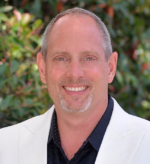 Dr. Greg Reid is a nationally renowned wealth and business expert, CEO and author of Wealth Made Easy. Dr. Reid is a world-renowned speaker, filmmaker, and entrepreneur known for his giving spirit and knack for translating complicated situations into simple, digestible concepts. He has published, coauthored, and been featured in more than 50 books, 28 bestsellers in 45 countries, five motion pictures, and featured in countless magazines. Dr. Reid demonstrates that the most valuable lessons we learn are also the easiest ones to apply. He is the Founder and CEO of the – Secret Knock, an exclusive event and professional collaboration community focused on partnership, networking, and business development. Secret Knock is strictly invite-only and includes well-known executives, entrepreneurs, artists, and professional athletes. It was named a “Can’t-Miss Conference for Entrepreneurs” by Forbes and Inc. Recently, Reid was hand-selected by The Napoleon Hill Foundation to help carry on the teaching found in the bible of personal achievement: Think and Grow Rich.
Dr. Greg Reid is a nationally renowned wealth and business expert, CEO and author of Wealth Made Easy. Dr. Reid is a world-renowned speaker, filmmaker, and entrepreneur known for his giving spirit and knack for translating complicated situations into simple, digestible concepts. He has published, coauthored, and been featured in more than 50 books, 28 bestsellers in 45 countries, five motion pictures, and featured in countless magazines. Dr. Reid demonstrates that the most valuable lessons we learn are also the easiest ones to apply. He is the Founder and CEO of the – Secret Knock, an exclusive event and professional collaboration community focused on partnership, networking, and business development. Secret Knock is strictly invite-only and includes well-known executives, entrepreneurs, artists, and professional athletes. It was named a “Can’t-Miss Conference for Entrepreneurs” by Forbes and Inc. Recently, Reid was hand-selected by The Napoleon Hill Foundation to help carry on the teaching found in the bible of personal achievement: Think and Grow Rich.

